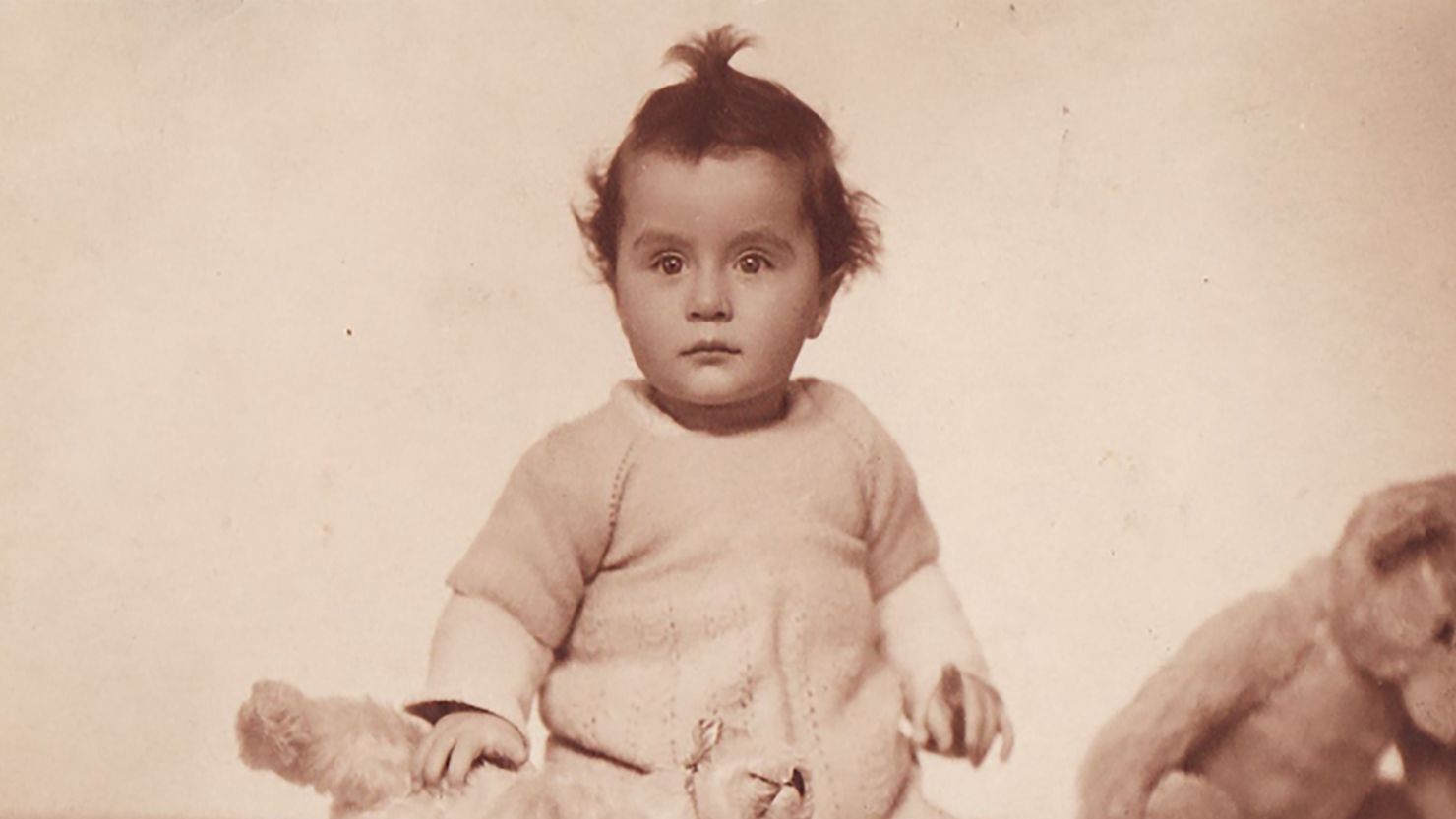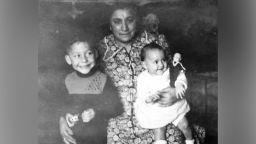When Alice Grusová was a baby, her parents left her on a train station bench, with no idea of what would become of her.
It was June 1942 and this was the last desperate act by Marta and Alexandr Knapp to save their daughter as their attempt to escape what was then Czechoslovakia ended in disaster.
The couple had fled Prague, but when their train drew in to Pardubice, eastern Bohemia, Nazi soldiers boarded in search of fleeing Jews.
Grusová – her married name – never saw her parents again. They were arrested and sent to Theresienstadt concentration camp, from where they were later deported to Auschwitz and murdered. Her brother from her father’s previous marriage was also killed there.
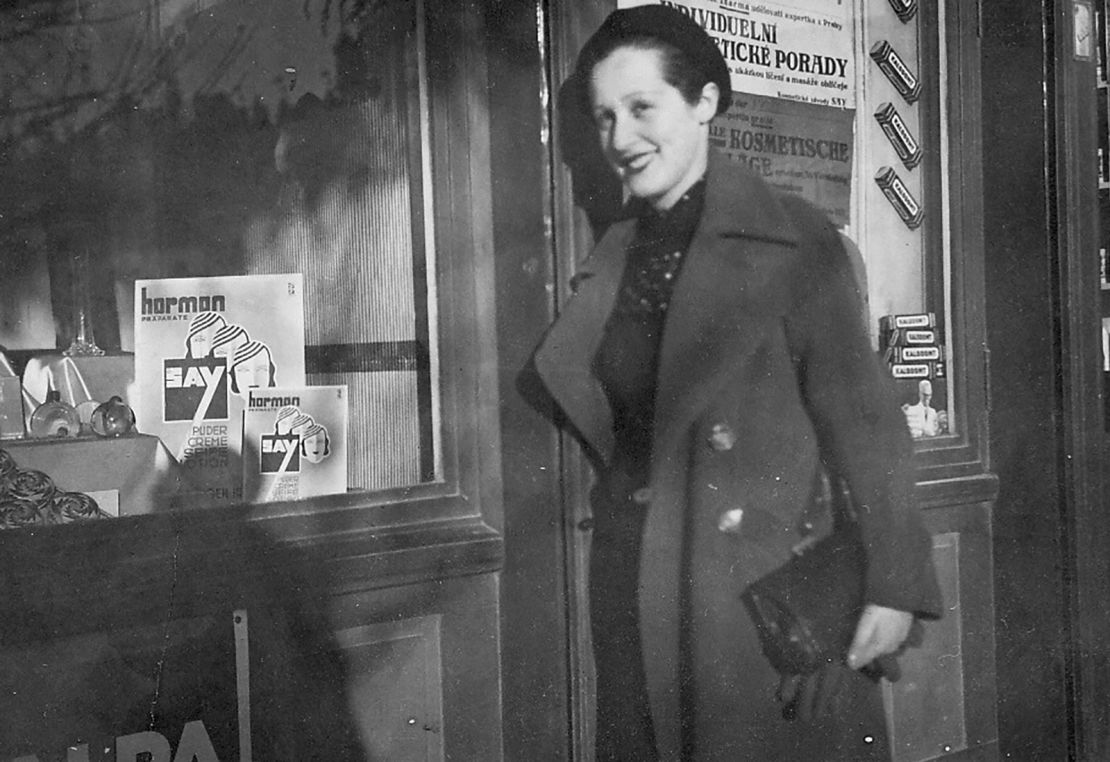
It might have been their infant daughter’s fate too, had it not been for their high-stakes gamble. This year, Grusová celebrated her 81st birthday – as well as her 60th wedding anniversary with husband Miroslav. Living in Prague, they have three sons, six grandchildren and three great-grandchildren.
This, she had always felt, was the sum total of her family, but earlier this year the retired pediatric nurse traveled to Israel where she reconnected with her Jewish heritage and met her only surviving first cousin – as well as a wider family she didn’t know existed.
“I was most shocked when I found out, when I was 80, that I have such a large family,” she said in an emotional video call with CNN.
“I am just sad this didn’t come earlier,” added Grusová, who has battled cancer, hepatitis and a spinal surgery.
The reunion occurred thanks to the efforts of a curious woman 5,000 miles away in South Africa, during the initial stages of the pandemic. The incredible story has now been shared by online genealogy site MyHeritage.
With so much of life on hold, Michalya Schonwald Moss delved into her family history on MyHeritage. She had always known her family had been decimated in the Holocaust, but nothing prepared her for the discovery that 120 of her relatives were murdered at Auschwitz.
Yet out of the unimaginable darkness, a tiny and most unexpected ray of hope emerged. With the help of professional genealogists in both Slovakia and Israel, she unearthed the incredible tale of one survivor: Grusová.
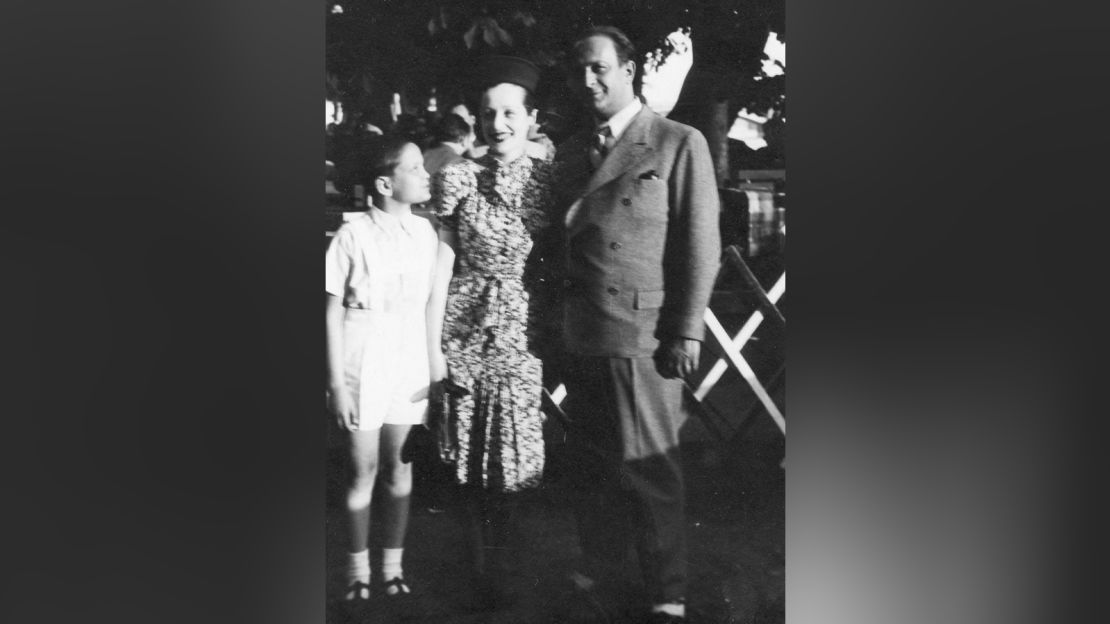
Having been found on the station bench, the one-year-old girl was initially placed in an orphanage. Grusová, who has no memory of her parents, was later moved to Theresienstadt. She recalled: “There was a nice woman who was taking care of us. I only remember glimpses from that time.
“And then I remember when I got sick with typhoid and the workers there had to protect me from the Germans.
“I remember they were telling me to be silent or the bad Germans would come and kill us.”
Incredibly, she survived and after the war was reunited with her mother’s younger sister Edith – or Editka as she calls her – who survived Auschwitz by being transferred to a labor camp.
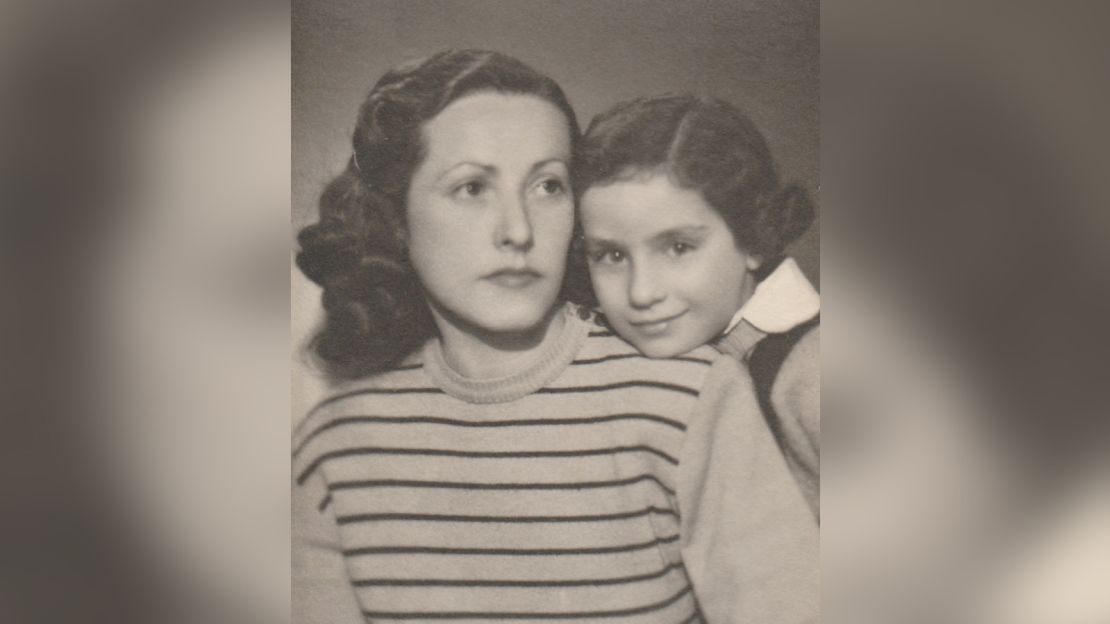
Her voice cracking with emotion, Grusová recalled her aunt, who like many Nazi camp survivors had her identity number tattooed on her arm. She said: “She was so beautiful, she was slim, she had the tattoo. But I didn’t understand that at the time.”
At first, the pair lived together in Czechoslovakia, but in 1947 her aunt emigrated to what was then Palestine. For reasons that remain unclear, Grusová was left behind and put up for adoption.
“I was six when my aunt left Czechoslovakia and I came to my new parents,” she said. “As a child, I was very sad that my aunt left. I didn’t understand why she didn’t take me with her.
“I was in contact with her for a while. She got married and had a son, whom I last saw in a picture when he was two years old.” But the correspondence with Edith petered out, and in 1966 “we lost each other,” she said.
Grusová never knew what happened to her aunt – until her son Jan, who speaks English, translated a surprising email his parents received from Schonwald Moss in 2021. He and his wife had spent years trying to trace his mother’s cousin, without success.
But with the help of professional researchers, Schonwald Moss had not only uncovered Grusová’s incredible tale but had also found that cousin – Edith’s son, Yossi Weiss, now 67 and living in the Israeli city of Haifa.
Weiss and Grusová “met” online last year, alongside other members of the newly discovered family tree. Weiss had known nothing of his cousin and his own life had been blighted by tragedy – having lost both his mother and his son to suicide.
Over the summer, Grusová flew to Israel with her husband, their son Jan and his wife Petra to meet Weiss and members of his wider family, including Schonwald Moss, who had traveled from South Africa for the occasion.
Grusová told CNN: “They wanted to meet me and come to visit me, but my cousin has cancer and he can’t travel.
“I was scared of the long journey at my age,” she said. “Now I am so pleased I went. I am just sad this didn’t come earlier.
“If it wasn’t for Covid, I would have never found out I have such a big family.”
Grusová – who speaks neither Hebrew nor English – communicated with her new-found relatives via an interpreter. Together they visited her late aunt’s grave, the Theresienstadt museum and the World Holocaust Remembrance Center at Yad Vashem, where she recorded her personal testimony and was also filmed for an Israeli news channel.
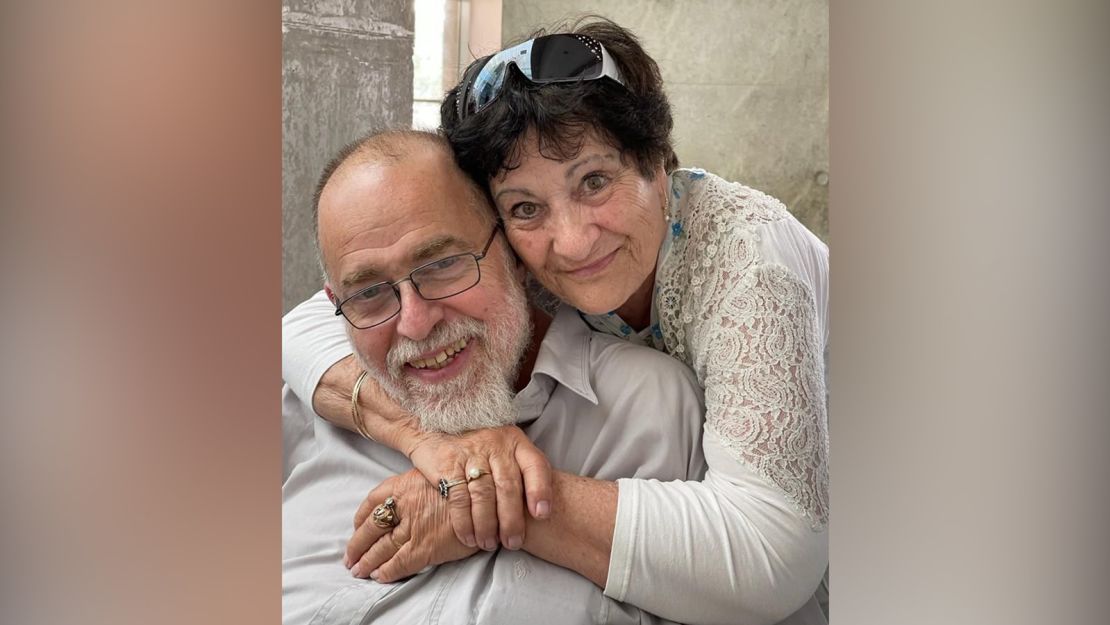
Simmy Allen, head of international media at Yad Vashem, was there at the time. He told CNN that it was a “very emotional gathering,” adding: “The idea that the family was uniting and different sides of the family were really discovering their roots and coming to Yad Vashem to solidify that, so that their ancestors have a place that will remember them in perpetuity.”
Grusová said: “My family increased in size a lot. And Michalya keeps finding more and more relatives.”
Weiss told CNN he had known little about his mother’s earlier life and was unable to explain why she left his cousin behind when she moved to what was then Palestine.
“From the little bit she told me I knew she worked in a factory and she came back to the city after the war and she was lucky to survive,” he said. “I knew she was married before and her husband was killed on the Russian front but I didn’t know the chapter of finding Alice.”
Of their reunion, he said: “I made sure I had private time with Alice.
“We opened up the issue of my mother coming to Israel and Alice staying behind and agreed that things were complicated.”
The question will forever remain unanswered, though Weiss has tried to make sense of it. “My mother was a Holocaust survivor coming back from the camps at the age of 25 and had just lost her husband. Alice was five. My mother couldn’t provide her home, school, food and everything,” he said.
Perhaps she thought her niece would have been better off with adoptive parents, he added.
“It hurts me on a personal level because sometimes I fantasize about ‘what if,’” he said.
Grusová felt similarly: “Of course I thought about what my life would have been. As a child, I was very sad that my aunt left. I didn’t understand why she didn’t take me with her.”
“My cousin tried to explain,” she added. “She was young, her life was saved by a miracle. I am not blaming her for anything.”
Of the reunion with Grusová, Weiss said: “She wanted very much to see my mother’s grave. It was very important to her and part of the closure.”
Being at Yad Vashem with Grusová when she recorded her testimony was particularly poignant, he said. “It was very emotional and not easy for anyone.”
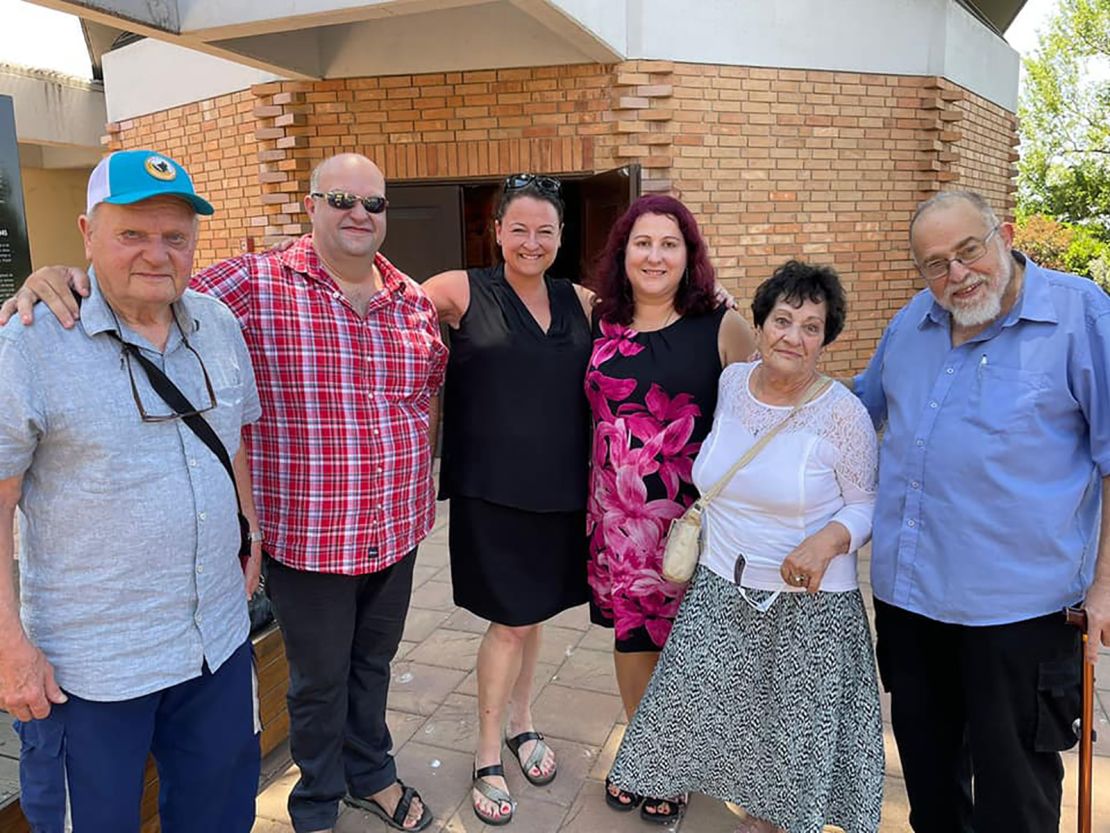
Schonwald Moss agreed. “It was one of the most extraordinary, intimate, emotionally healing experiences of my life,” she told CNN.
The family is now in talks with Steven Spielberg’s USC Shoah Foundation, which plans to record Alice’s video testimony in the new year.
“To discover that one family member had survived that we never knew about, and that she was still alive and living in Prague, was as if we had found a living ghost. And then to discover her story was especially heartbreaking,” said Schonwald Moss.
“By having her anew in our lives, she’s taught us what living looks like. Everyday is a repair for our family. And thanks to Alice and the sparkle in her eyes and the love she emanates, we have become a family again.”
Roi Mandel, MyHeritage’s director of research, welcomed the outcome for Grusová and her family. “Alice’s story is the story of many who survived the war and assumed they were left alone in the world, not knowing that there was another branch that survived,” he said.
“Decades of disconnection as a result of the Iron Curtain that was raised over Eastern Europe, have come to an end thanks to the technology that makes it possible to connect pieces of a puzzle that it seemed would never come together.”
Clarification: An earlier version of this article incorrectly stated that Schonwald Moss worked with a Czech genealogist. The genealogist is based in Slovakia.

